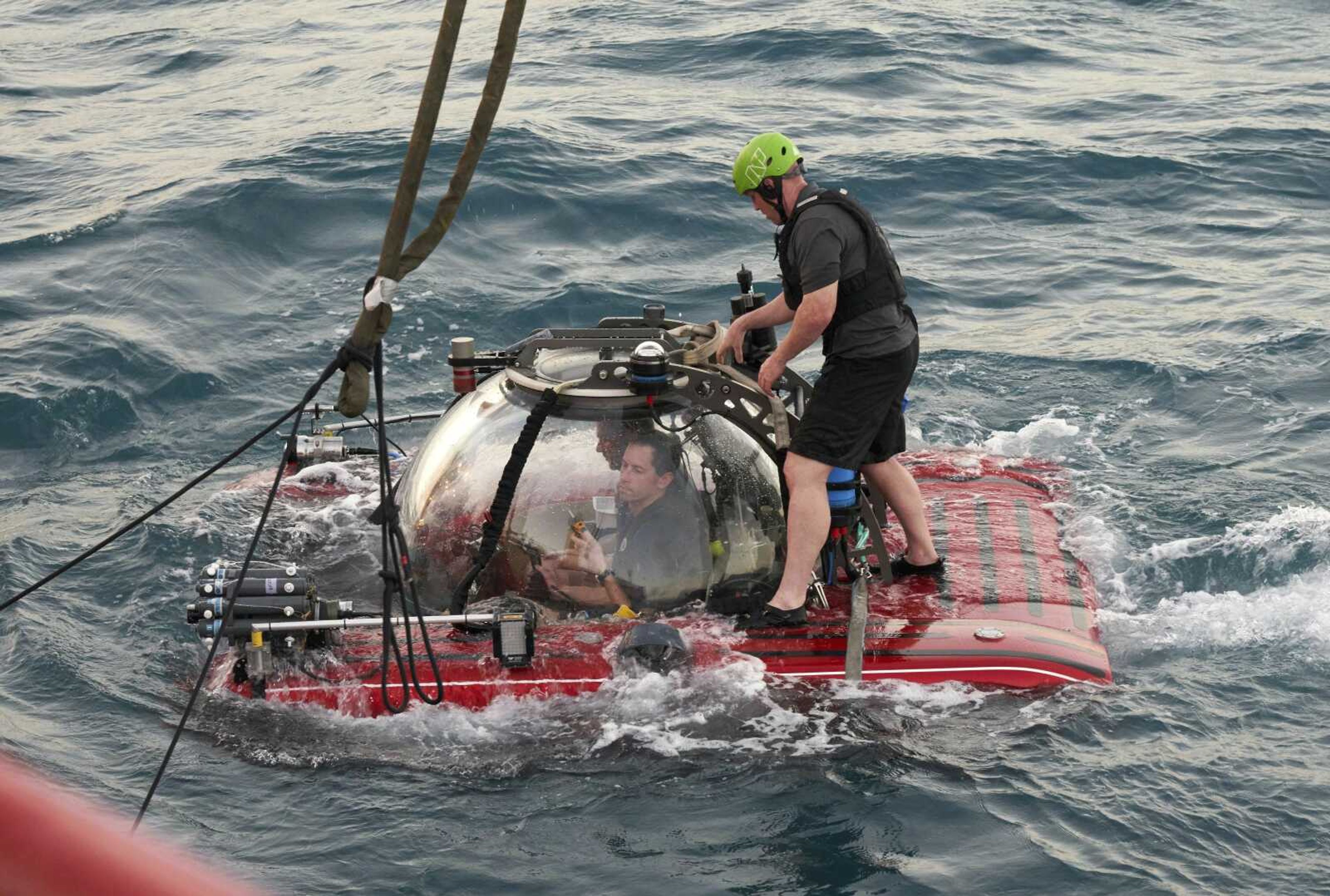Bad weather changes course of Indian Ocean exploration
VICTORIA, Seychelles -- Bad weather and high seas brought scientists Wednesday to change the first stop of a unique mission to explore the depths of the Indian Ocean, one of the planet's last great unexplored frontiers. While the initial path of the exploration has changed, the scientists intend to fully explore the deep seas around the Seychelles. ...
VICTORIA, Seychelles -- Bad weather and high seas brought scientists Wednesday to change the first stop of a unique mission to explore the depths of the Indian Ocean, one of the planet's last great unexplored frontiers. While the initial path of the exploration has changed, the scientists intend to fully explore the deep seas around the Seychelles. Here's a look at what the Nekton Mission hopes to achieve and why the people of the Seychelles, the first stop on this three-year expedition, are excited about its launch.
Who's on board?
The expedition is led by the Britain-based Nekton, an independent, not-for-profit research institute working with the University of Oxford to increase scientific understanding of the oceans. It has chartered the Ocean Zephyr, a Danish-flagged supply ship, to explore the waters around the Seychelles, a collection of islands about 930 miles east of the African coast, over a seven-week period.
This is the first of a half-dozen regions the Nekton Mission plans to explore before the end of 2022, when scientists will present their research at a summit on the state of the Indian Ocean.
The Associated Press is accompanying the expedition and will provide live underwater video from the dives, using new optical transmission technology to send footage from the submarines to the ship and from there, by satellite, to the world.
Where are they going?
Researchers started by heading to the Farquhar Atoll, a group of islands about 480 miles southwest of the Seychelles capital, Victoria.
But brewing bad weather forced the mission to change course Wednesday because it feared conditions would be too difficult to carry out its work.
The leaders of the mission spent hours studying weather reports, which were slow to come in to their ship due to difficulties accessing the internet.
A strong swell and high winds made it impossible for the team to safely launch and recover the crewed submersibles to carry out the explorations.
With building storm activity close to their first chosen location, the low-lying Farquhar Islands, the team decided to head instead to the tiny atoll of Alphonse, the above-water tip of an underwater mountain, or sea mount, surrounded by seas thousands of feet deep.
"It's no good sticking to a rigid plan if we have a storm coming through and we are going to sit around and do nothing for a few days," Nekton's principal scientist, Lucy Woodall, told The Associated Press.
Further stops include Aldabra, a coral atoll that's home to a large population of giant tortoises and other vulnerable species.
Goals
Scientists will survey underwater life by diving into the "twilight zone" below depths of 100 feet the tropical sun barely reaches. Using two crewed submarines and a remotely operated submersible they'll be able to document organisms and habitats up to 1,640 feet deep, while sensors will offer a glimpse of depths of up to 6,560 feet.
Little is known about this watery world. Yet what happens beneath the waves could affect the lives of billions of people who live along the Indian Ocean's shores in Africa and Asia.
Already, rising water temperatures are bleaching coral reefs, with potentially serious consequences for other organisms.
By conducting at least 50 "first descents" to map the depths around the Seychelles, scientists hope to better understand the marine ecosystem and the way this vast body of water is changing due to global warming.
"If you save the islands, you save everybody," Ronny Jumeau, Seychelles' ambassador to the United Nations, told the AP in explaining the importance of countering climate change. "If the islands go, every port city, major port city, will go. Every beach in the world will go, every river estuary will go. Every delta, the Nile Delta, the Mekong Delta, you name it."
Connect with the Southeast Missourian Newsroom:
For corrections to this story or other insights for the editor, click here. To submit a letter to the editor, click here. To learn about the Southeast Missourian’s AI Policy, click here.








